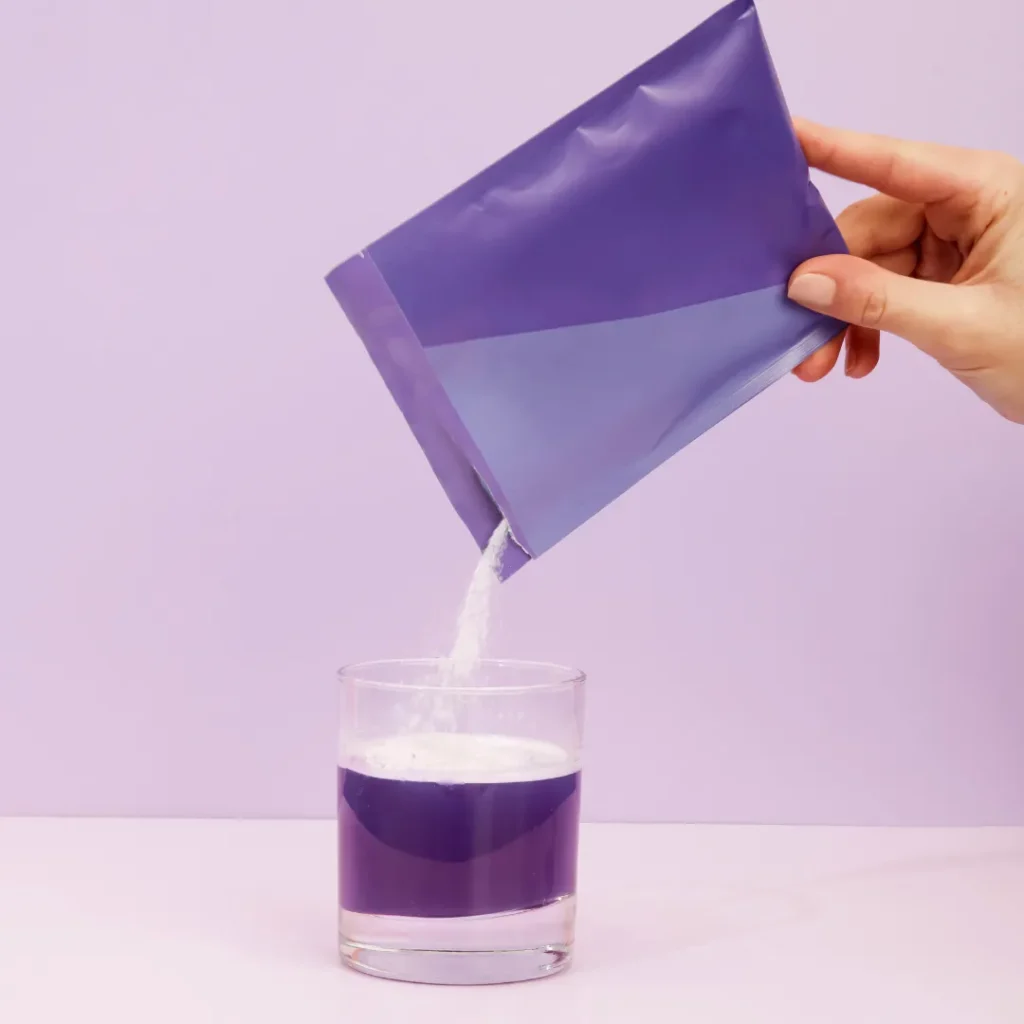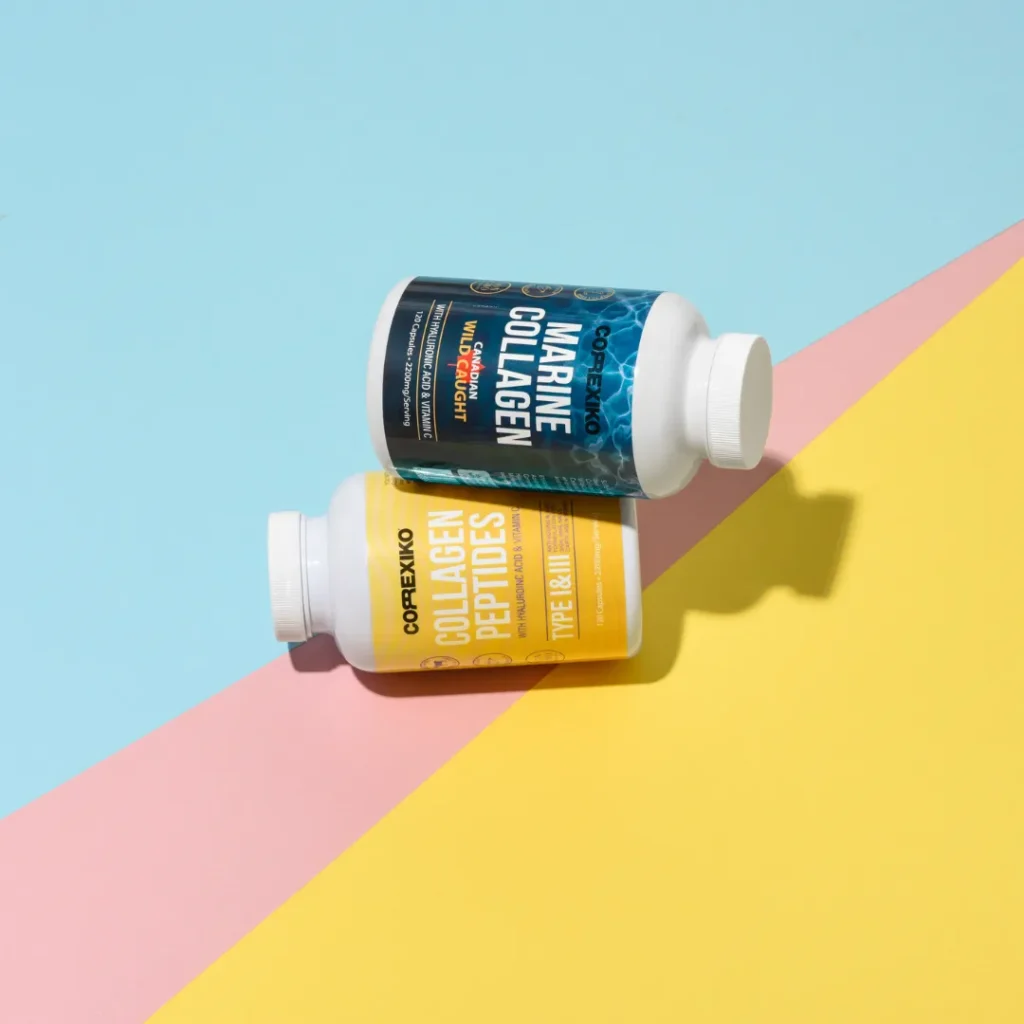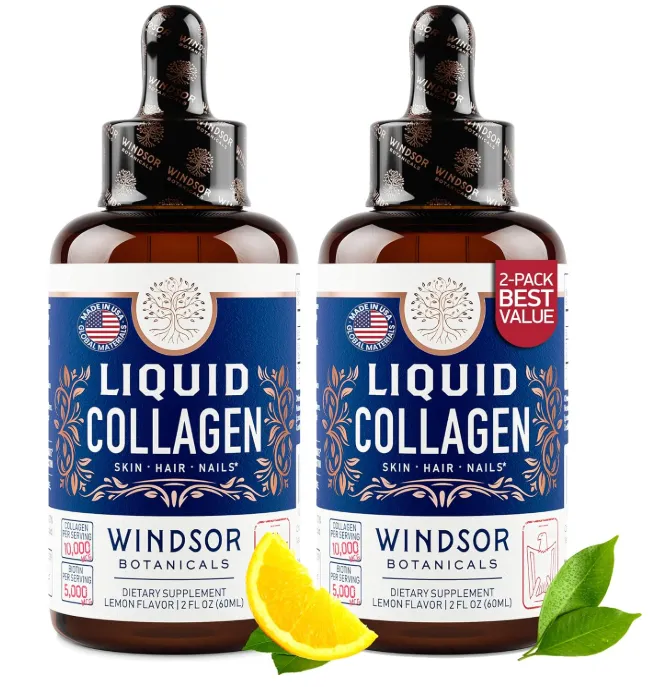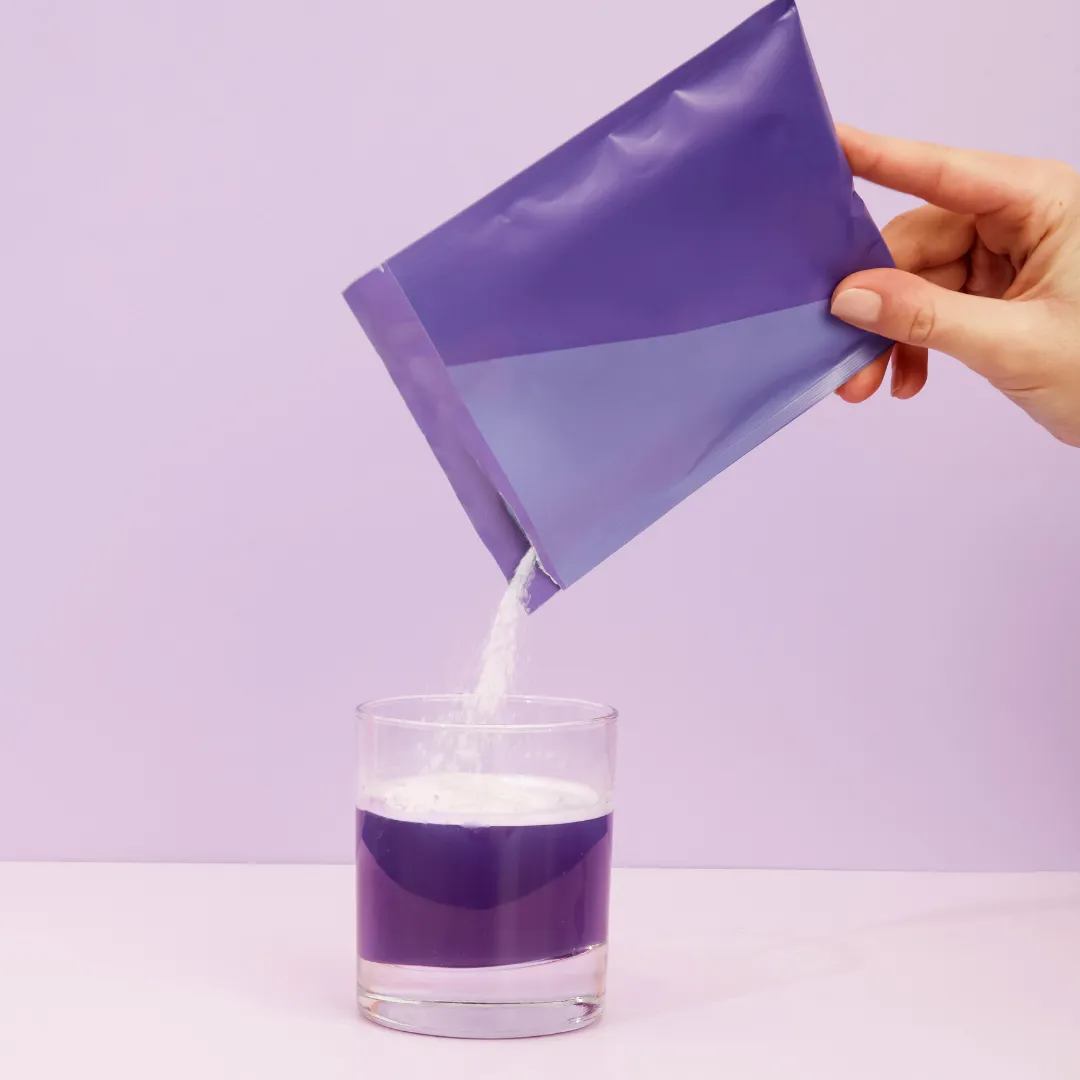Is Liquid Collagen Better Than Powder?
Is Liquid Collagen Better Than Powder? In the rapidly expanding world of collagen supplements, many consumers find themselves facing an important choice: should you choose liquid collagen or powder collagen? With both options promising similar benefits for skin, joints, and overall health, understanding the key differences can help you make the best choice for your personal wellness goals.
This comprehensive guide will examine the benefits, effectiveness, absorption rates, and practical considerations for both liquid and powder collagen supplements to help you determine which form might be right for you.
What Is Collagen and Why Is It Important?
Collagen is the most abundant protein in the human body, making up approximately 30% of your body’s protein content. It provides structure, support, and strength to your skin, muscles, bones, and connective tissues. As we age, our natural collagen production decreases—typically starting in our mid-20s—leading to visible signs of aging like wrinkles, joint pain, and decreased skin elasticity.
Collagen supplements have gained popularity as a way to potentially counteract these natural aging processes by providing the body with additional collagen peptides that can be absorbed and utilized.
Liquid Collagen vs. Powder Collagen: Key Differences
Collagen Concentration
One of the most significant differences between liquid and powder collagen is the concentration of actual collagen per serving.
Powder Collagen:
- Typically contains 7-20 grams of collagen per serving
- Often offers more collagen per serving than liquid alternatives
- Usually has fewer additional ingredients
Liquid Collagen:
- Generally contains 3-10 grams of collagen per serving
- Many liquid collagen products have only 3 grams per 12 oz serving
- Often includes additional ingredients like vitamins, minerals, fruit juices, and sweeteners
“Powdered collagen offers more control over dose and use — and better value. If your goal is maximum collagen per dollar, powder wins,” according to a 2023 report from For Youth.
Bioavailability and Absorption
A common marketing claim is that liquid collagen is more bioavailable or better absorbed than powder alternatives. However, scientific evidence doesn’t strongly support this claim.
“Both powders and liquids use collagen peptides, which means they possess similar bioavailability and absorption — there’s no scientific evidence showing one is better than the other,” according to CB Supplements. CB Supplements
What matters most for absorption is not whether the collagen is liquid or powder, but whether it’s hydrolyzed. Hydrolyzed collagen (also called collagen peptides) has been broken down into smaller, more digestible particles that can be more easily absorbed by the body.
The good news is that most collagen supplements—both liquid and powder—use hydrolyzed collagen peptides, making them equally bioavailable once consumed.

Convenience and Usage
Liquid Collagen:
- Ready to drink without preparation
- Convenient for on-the-go consumption
- No mixing required
- Often flavored and palatable on its own
Powder Collagen:
- Requires mixing with liquids or food
- More versatile for adding to different foods and beverages
- Can be added to smoothies, coffee, tea, soups, or oatmeal
- May have a slight taste that needs masking in some applications
“Liquid collagen supplements tend to be more convenient to take than powdered collagen supplements. You can easily add liquid collagen to drinks or food or buy liquid collagen drinks that are already mixed for you and portable,” notes The Balanced Nutritionist. The Balanced Nutritionist
Cost Comparison
When comparing the cost of liquid versus powder collagen, there’s a significant difference:
Powder Collagen:
- Approximately $0.75 per 7g serving (industry average)
- More economical for daily long-term use
- Higher collagen content per dollar spent
Liquid Collagen:
- Approximately $4.50 for equivalent collagen amount (industry average)
- More expensive due to manufacturing process, packaging, and additional ingredients
- Lower collagen content per dollar spent
The price difference is substantial, with liquid collagen often costing 5-6 times more for the same amount of collagen protein.
Additional Ingredients
Another key distinction between the two forms is what else comes in the package:
Powder Collagen:
- Often contains just collagen peptides (single ingredient)
- Flavored versions may contain natural flavors and sweeteners
- Minimal additional ingredients
Liquid Collagen:
- Frequently contains a variety of other ingredients:
- Vitamins and minerals (C, B6, B12, thiamin, magnesium)
- Fruit juices and extracts
- Sweeteners (stevia, monk fruit, sugar)
- Essential oils
- Electrolytes
- Caffeine (in some products)
- Additional supplements like hyaluronic acid or biotin
These additional ingredients in liquid collagen products may provide additional benefits, but they also increase the calorie content, potential for allergic reactions, and overall cost.

Health Benefits: Does Form Affect Effectiveness?
Both liquid and powder collagen supplements offer similar potential health benefits when taken consistently over time:
Skin Health
Research suggests that collagen supplements may improve skin elasticity and hydration while reducing wrinkles. A 2021 review of 19 studies with 1,125 participants found that taking hydrolyzed collagen daily for at least 3 months improved skin elasticity and hydration and reduced wrinkles.
Joint Support
Studies have shown that collagen supplementation may reduce joint pain and improve mobility, particularly in people with osteoarthritis. A 2019 research review reported that collagen treatments reduced joint stiffness but not necessarily joint pain. More research is needed.
Bone Health
Collagen is a key component of bone, and some research suggests it may help boost bone density and manage osteoporosis. A 2018 study showed that 5 grams of powdered collagen taken daily for 1 year was linked to stronger bones in postmenopausal women.
Muscle Mass
As people age, they naturally lose muscle mass, a process called sarcopenia. Some studies suggest collagen supplements can help improve muscle mass, especially when combined with resistance training, although results are mixed.
Importantly, the potential benefits appear to be related to the collagen itself rather than whether it’s delivered in liquid or powder form. What matters most is taking an adequate dose (typically 2.5-15g daily) consistently over time (at least 8-12 weeks).
WINDSOR BOTANICALS Liquid Collagen for Women and Men – Hair, Skin, Nails Vitamins – Lemon Flavor Collagen Peptides Hair Growth Drink – 5,000mcg Biotin, 10…
GLOSSY HAIR, GLOWING SKIN. Concentrated collagen drops womens formula supporting keratin and elastin levels for hair and nail growth.

Who Might Prefer Liquid Collagen?
Liquid collagen may be the better choice for:
- People who value convenience above all else
- Those who dislike the texture or taste of powder in beverages
- Individuals who have trouble swallowing pills or mixing powders
- People who appreciate the additional nutrients often included
- Those who want a ready-to-drink option for on-the-go use
Who Might Prefer Powder Collagen?
Powdered collagen may be preferable for:
- Budget-conscious consumers looking for the most collagen per dollar
- People who prefer to avoid additional ingredients
- Those who enjoy adding collagen to different foods and beverages
- Individuals seeking higher doses of collagen (10-20g daily)
- People who prefer unflavored supplements can use in various ways
Quality Considerations for Both Forms
Regardless of whether you choose liquid or powder collagen, quality matters:
- Third-party testing: Look for supplements verified by third-party organizations like USP, NSF, or ConsumerLab to ensure purity and potency.
- Collagen source: Consider the source of collagen (bovine, marine, or chicken) based on your dietary preferences and any allergies.
- Hydrolyzed collagen: Ensure the product contains hydrolyzed collagen (collagen peptides) for optimal absorption.
- Clean ingredients: Check for unnecessary additives, preservatives, or artificial sweeteners.
- Collagen types: Multi-collagen products containing various types (I, II, III, V, X) may offer more comprehensive benefits than single-source options.
“A multi-collagen powder (offering types I, II, III, V, and X) will be more effective than a marine collagen or bovine collagen liquid drink (offering only types I & III),” notes CB Supplements. CB Supplements
Collagen Types
Whether you choose a liquid or powder collagen supplement, you’ll want to pay attention to what types of collagen are being offered – as well as the source to ensure you get the anti-aging benefits you’re looking for.
Research has identified about 28 types of collagen. The following 5 are the most prevalent in the human body.
Type I – Accounts for 90% of the body’s collagen stores and is found abundantly just below the surface of the skin in the dermis, as well as in bones, hair, nails, tendons, and the lining of the digestive system.
Type II – Present in cartilage, giving it strength and elasticity, which provides joint support.
Type III – The second most abundant collagen in the body. Present in skin, gut, muscles, uterus, and blood vessels.
Type V – Present in the cornea of the eyes, some layers of skin, hair, and tissue of the placenta.
Type X – Present in joint cartilage and bones.
Collagen supplements are sourced from cartilage, skin, and bones from animal and marine sources. The most common are the following:
- Marine collagen from skin, bones, and scales of fish; rich in collagen types I and II
- Bovine collagen from cows; rich in collagen types I and III
- Porcine collagen from pigs; rich in collagen types I and III
- Eggshell collagen from chickens; rich in collagen type V
- Chicken collagen from chickens; rich in type X
There are no vegan collagens, but some vegan collagen formulas provide ingredients that support your body’s synthesis of collagen. Scientists are working on a viable vegan collagen from bacterial and fungal sources.
How Much Collagen Should You Take?
Most research studies showing benefits from collagen supplements use daily doses ranging from 2.5 to 15 grams, with many focusing on the 10-gram range. However, some experts suggest that up to 20 grams per day can be beneficial for certain conditions.
The Balanced Nutritionist states: “If you feel that collagen is the right fit for your health goals and fits into your budget, the studies typically look at 5-20 grams of collagen per day. More isn’t necessarily better here.” The Balanced Nutritionist
The Verdict: Is Liquid Collagen Better Than Powder?
The evidence suggests that neither liquid nor powder collagen is inherently “better” in terms of effectiveness or absorption. Both forms contain hydrolyzed collagen peptides that your body can readily utilize.
The choice between liquid and powder collagen ultimately comes down to:
- Budget: Powder collagen delivers more collagen per dollar spent
- Convenience: Liquid collagen requires no preparation
- Dosage needs: Powder typically provides higher amounts of collagen per serving
- Additional ingredients: Liquid formulations often contain extra nutrients and supplements
- Personal preference: Taste, texture, and consumption method preferences
As Harvard Health Publishing notes, “At this time, there isn’t enough proof that taking collagen pills or consuming collagen drinks will make a difference in skin, hair, or nails.” Harvard Health
While some individuals report positive results from collagen supplementation, more research is needed to fully understand the long-term benefits of collagen supplements in either form.
What is Liquid Collagen?
Hydrolysed marine collagen is a type of liquid collagen sourced from fish. This product undergoes a hydrolysis process, which breaks down collagen fibres into collagen peptides – small collagen chains that are more bioavailable to your body. Meanwhile, our Vegan Collagen Support is a blend of amino acids and essential vitamins and minerals that has been specially formulated using liposomes to support collagen.
All nutrients need to be liquid before the body can use them, so as far as the best collagen supplements go, liquid collagen is already in the form it needs to be. This means the body can absorb the nutrients more quickly and more of the good stuff gets to where it needs to be. With some supplements, the body can break down the positive ingredients, meaning a much smaller percentage of the product is absorbed. With liquid collagen, there’s less wastage, as the liquid travels straight to the right place.
What is Collagen Powder?
Well, collagen powder is just that, a powder. Powdered collagen is mixed with water or another liquid and then drunk. The idea is that the powder is turned into a liquid, but the trouble with powder is it doesn’t always break down into a liquid all that well. As a result, sometimes the powder doesn’t mix thoroughly, and the drink can have a somewhat gritty texture. When it comes to liquid collagen vs powder, a liquid is smooth and ready to go, so why waste time mixing?
Another issue with collagen powder is that the dosage is not always consistent, as the powder contains small and large molecules. Some people also complain that powdered collagen can have a chalky or bitter taste, which no one wants from their daily collagen supplement!
What Are Collagen Tablets?
There are many collagen tablets on the market now. It might sound obvious, but whether you use collagen tablets or powder mostly just depends on how you like to take your collagen. Some people simply don’t like swallowing pills and so the bonus with collagen powder vs pills is a no brainer. On the other hand, some people don’t have time to mix their collagen powder and prefer the convenience of a pill. Another common complaint is that supplement tablets can be quite large and can therefore be harder to take, even if you’re usually comfortable using tablets.
It’s also worth noting that the casing on collagen tablets is often made using gelatin and so won’t be vegan or even vegetarian-friendly. You’ll also need to check the dose, as different tablets have different doses in and while one brand might require you to take two tablets, another might require just one – let’s just say it’s not as simple as having a single sachet.
So, Which Is the Best Collagen Supplement?
As you can tell, we’re big fans of liquid collagen. Our liquid collagen sachets are a ready mix of 8g of high-quality hydrolysed marine collagen, 200mg of vitamin C, 10mg of hyaluronic acid, and a complex of B vitamins and other vital ingredients to help provide the best results.
In all honesty, whether it’s collagen powder vs pills, or liquid collagen vs powder, all of them will work and provide you with added benefits. That being said, we’d go for liquid collagen every time.
We use NutriProtect technology with our SKINGLO products. NutriProtect is an innovative technology that encases the supplement in a ‘life jacket’ called a liposome. This liposome keeps the nutrients intact until they get to where they need to be. Many traditional supplements have their nutrients broken down by stomach acids before reaching the bloodstream, which is why we back our liquid sachets as the best collagen supplements for fast acting results.
Our NutriProtect technology ensures you get the maximum amount of nutrients possible to produce the most visible effects. Our products also come in individual sachets, which mean they’re great for on the go. Whether you’re travelling with work, heading to the gym, or going on holiday, our small sachets make it easy to get your daily dose. There’s no bulky tablet tub to carry around or no need to measure out and mix powder every morning.
( Benefits drinking matcha green tea. Once considered an exotic drink central to Japanese tea ceremonies, matcha is now found in coffee shops and cafes around the world. But matcha’s vibrant green hue isn’t just good fodder for Instagram feeds. This green powder may also boost the health of older Americans. Research has found benefits for memory, heart health, immune system and healthy aging.






